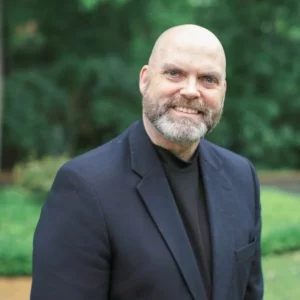In the United Methodist Church these days, it is all about “the plans.” Three have been recommended by the Commission on a Way Forward. I note them here for reference, with reflections beneath about another denomination’s experience with their version of the One Church Plan:
The Traditionalist Plan: This plan maintains language in the Book of Discipline around issues of human sexuality, and provides a gracious (but as-yet undefined) exit for those who cannot in good conscience abide by that language. Those who support this plan are often accused of being schismatic for their unwillingness to bend on what they would call core theological convictions — convictions written into the Book of Discipline and which traditionalists and progressives alike committed to at their ordination.
The One Church Plan: This plan removes language in the Book of Discipline around issues of human sexuality, leaving it to churches to determine what their guidelines will be on issues like membership, marriage of same-sex couples, or ordination of LGBTQ persons. There is no exit ramp attached to this plan, presumably because it allows churches, members and pastors to choose their theology. The lack of a gracious exit reveals a fundamental misunderstanding of what it means to have deeply held convictions about the Bible, holiness, marriage and the nature of discipleship. It requires those convictions to submit to the cause of institutional preservation.
The Connectional Conference Plan: This plan corrals United Methodists into three main “camps” — traditionalist, centrist and progressive. These three camps would share affiliated services while being otherwise autonomous though governed by one Council of Bishops. There is no gracious exist attached to this plan, though it also requires a fundamental shift in understanding about what it means to hold core theological convictions. What the One Church Plan requires of laypersons and clergy, the Connectional Conference Plan requires of bishops, requiring them to set aside personal conviction for the sake of institutional preservation.
The One Church and Connectional Conference Plans — by their lack of exit ramp and the assumption that preservation trumps personal conviction — reveal the depth of our divide in the United Methodist Church, a divide that ought to be respected because it refuses to be minimized. Other denominations have proven the power of this kind of theological divide.
A colleague and friend, Reverend Dave Keener, witnessed this firsthand during the similar crisis in the Evangelical Lutheran Church of America (ELCA). Reflecting on the eventual division in the ELCA and its similarities to the current crisis in the UMC, Reverend Keener notes that something similar to the One Church Plan (OCP) was adopted by the ELCA in 2009. “The term they used was ‘bound conscience,’” he writes. “The assembly was assured that the theological and biblical positions of traditionalists and progressives alike would be respected. This did not happen.”
Soon after the vote it became clear to the traditionalists that there was in reality only one acceptable position and it wasn’t theirs. Since the the decisions of 2009 the ELCA has intentionally become more progressive and the traditionalists who remain in that denomination have been marginalized (most exited at the height of the crisis, forming the North American Lutheran Church, or NALC).
It may be helpful to take note of what happened within the ELCA in the aftermath of their adoption of a plan similar to the OCP. These reflections come from my Lutheran colleague:
- Massive loss in membership. In the seven years after the decision to go against the historic teaching of the church the ELCA lost over one million members. They continue to decline but have not released numbers since 2016.
- Massive loss of income. In the first few years after the vote the ELCA was forced to lay off hundreds of workers and experienced significant decreases in all areas of funding. Their current income for denominational expenses is less than it was in 1987, the year it was organized.
- Global impact. Many churches in other parts of the world broke off formal ties with the ELCA — especially in Africa and the East.
- Loss of confessional identity and loyalty. It was no longer possible for local pastors to recommend that members who were relocating find an ELCA congregation since there was no longer unity in biblical teaching.
- Theological education. Since the vote the ELCA has slowly purged itself of orthodox seminary professors. They have had to merge two of their seminaries for financial reasons and have removed one seminary president at the urging of progressive advocacy groups.
- Diversity. One of the battle cries for the ELCA in making their decision was diversity, inclusion and welcoming. Ironically, according to a Pew research study last year the ELCA is now the second least diverse and multicultural denomination in the USA (96% white). The least diverse is the National Baptist Convention which is 99% African American.
- Theological drift because of lack of accountability. Since the 2009 decision the denomination has continued to drift. With it’s decision the ELCA lost its ability to speak credibly to any issue. In saying that it doesn’t really matter what the Bible clearly states they reduce it to one resource among many and not God’s revelation to His people. Everything becomes a matter of opinion and soon the scripture has no authority for life. Congregations preaching various forms of universalism are becoming more and more common.
- Generational impact. This article explains how quickly theology can drift in just one generation, once the theological core of a tribe has been removed.
- Evangelism and discipleship. See point #1 for stats on loss of membership and attendance. As my friend notes, “Once biblical authority and historical teachings are removed, universalism and cheap grace are not far behind” … and neither breeds evangelistic urgency.
We owe it to ourselves and the thirteen million who call themselves United Methodist to learn from our brothers and sisters in other tribes who have may have tried too hard to hold together what isn’t theologically compatible. May God give us both grace and humility to go where he leads and to refuse the spirit of fear.








